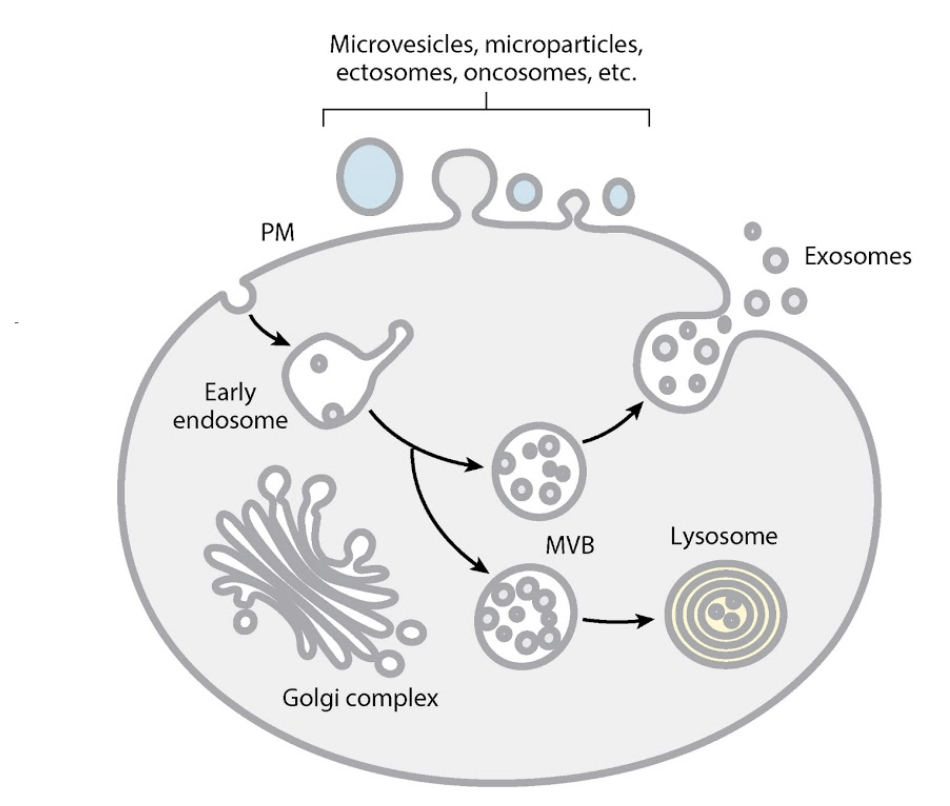Exosome Therapy and the Future of Medicine
Exosomes are small, membrane-bound vesicles that are secreted by cells into the extracellular environment. They play a crucial role in intercellular communication and have been implicated in various physiological and pathological processes.
Structure and Composition:
- Exosomes range in size from 30 to 150 nanometers.
- They are composed of a lipid bilayer membrane, containing various proteins, lipids, nucleic acids (including DNA, mRNA, and miRNA), and other molecules.
Origin and Formation:
- Exosomes are produced in the multivesicular body (MVB) pathway within cells.
- They bud off from the inner membrane of the MVB and are then released into the extracellular space through exocytosis.

Functions:
- Intercellular Communication:Exosomes carry and deliver bioactive molecules, such as proteins, nucleic acids, and lipids, to recipient cells. This facilitates intercellular communication and signaling.
- Immune Regulation:Exosomes can modulate immune responses by transporting immune checkpoint molecules and other immune regulators.
- Tissue Regeneration:Exosomes contain growth factors and other bioactive molecules that promote tissue repair and regeneration.
- Stem Cell Biology:Exosomes secreted by stem cells can influence the behavior and differentiation of other cells.
- Disease Biomarkers:Exosomes carry specific proteins, nucleic acids, and other molecules that can serve as potential biomarkers for various diseases, such as cancer and neurodegenerative disorders.
Read More About Exosomes
Research
Exosome Research – Hair Loss
NIH
Exosome Research – Erectile Dysfunction
NIH
Exosome Research – Skin Disorders
NIH
Therapy
Presently exosomes are not FDA approved to treat any specific condition however they are administered as off label usage. Treatment will usually consist of 1 to 4 cc of exosomes, which when calculated in number, are in the hundreds of billions per treatment. Each cc or ml of exosomes contain anywhere between 110 billion to over 330 billion exosomes. For example 1 cc of skin exosomes contain 110 billion while sexual health exosomes are 330 billion per cc.
Therapy for the hair is usually treated with 3 cc of exosomes, and may be combine with PRP (platelet rich plasma) or used separately.
Therapy for erectile issues is usually 2 cc.
Therapy for the female O-shot is typically 1-2 cc.
Therapy for skin disorders can range from 1-4 cc.
Therapy for joint issues is typically 1-2 cc per joint.